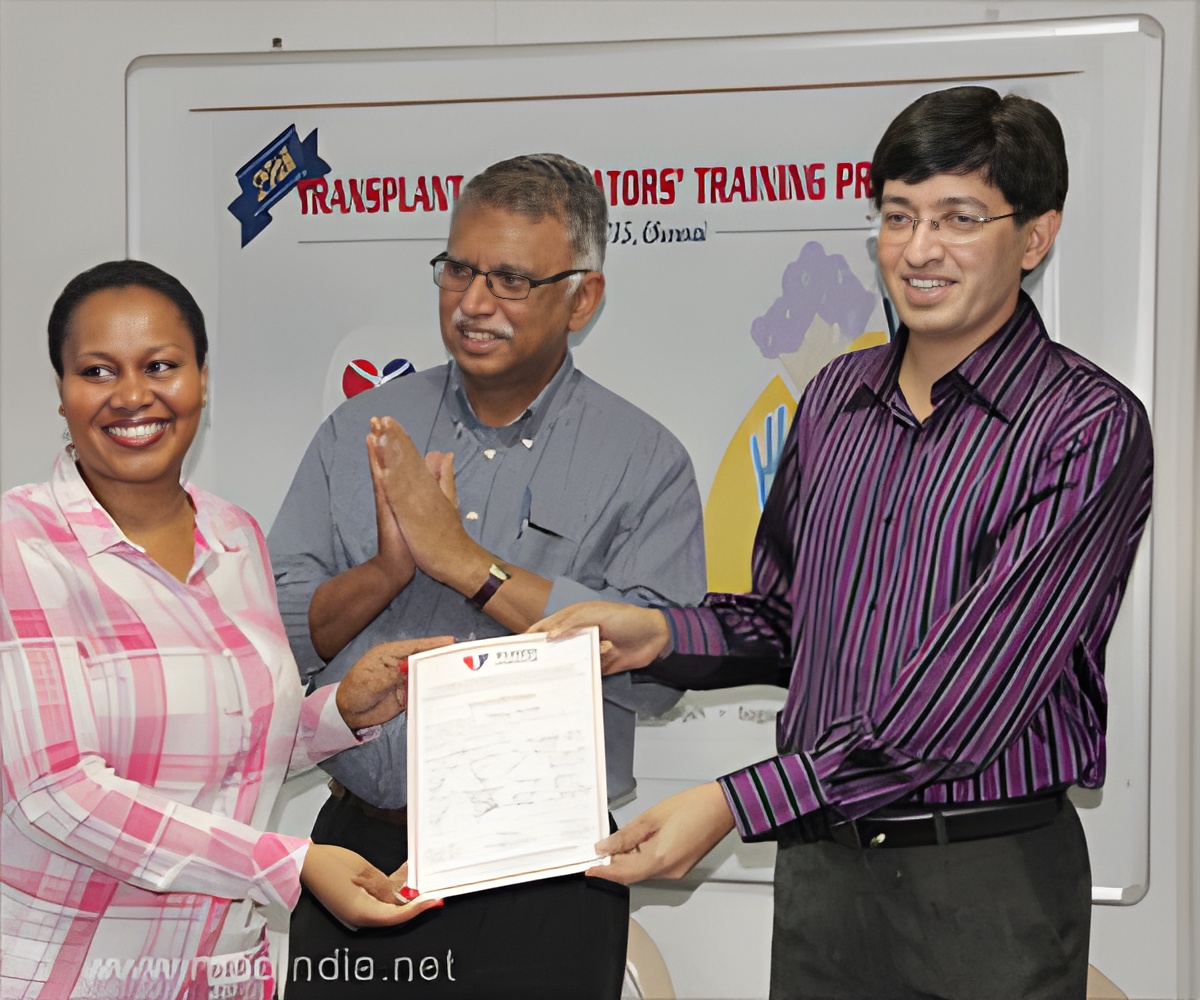The African country’s government wants to coordinate with India’s healthcare personnel to set up organ donation and transplant facilities in its country.

Bantshi, a nurse in Botswana, was entrusted with the job of facilitating organ transplantation for Botswanans in India. The 32-year-old has been working with Princess Marina Hospital in Gaborone – the capital city of Botswana – for 14 years. She brings organ donors and recipients to India and she takes them back home, after the successful transplantation.
Bantshi gave an exclusive interview to Medindia when she attended MOHAN Foundation’s Organ Donation Coordinators’ Training Program held in Chennai last month.
For the first time, a citizen of Botswana underwent the first transplantation in India in April 2014. The kidney transplant was carried out by a private hospital in Delhi.
"I should say that my first mission was a life-saving success. The transplantation was conducted at Apollo Hospital in Delhi. Both the donor and recipient are now leading a normal life in Botswana," she says. Names of both the recipient and donor have been withheld to protect privacy.
First Success Encourages Botswana to Move Forward
After the first successful transplant, the Health Ministry of Botswana signed a Memorandum of Understanding (MoU) with Apollo Hospitals, Delhi, in September 2014. In the MoU, the hospital agreed to conduct organ transplants for Botswanans.Botswana has a population of just over 2.16 million. Botswanans have very strong beliefs when it comes to life after death. Most of them believe that a person’s body has to be intact in order to be fully accepted into heaven.
In the past year, Botswana has done four organ transplantations in India.
Botswana’s New Mission
Having seen the power of organ donation to save lives, the Ministry of Health in Botswana wants to set up organ transplant facilities in their country. The Botswana government plans to achieve this goal in two years."My country lacks trained organ transplant surgeons and facilities. Last month, I brought two doctors to India and they are getting trained under various experts here,” she said.
However, the biggest challenge ahead is changing the mindset of people in Botswana who are completely against it.
MOHAN Foundation Training Program Helps to Overcome the Biggest Challenge
Bantshi wants to promote cadaver organ donation and transplantation in Botswana. She was desperate to get expert training for laying the groundwork and coordinating between the two countries in organ donation.Cadaveric organ donation and transplantation involves close networking of medical, paramedical and non-medical personnel. Trained transplant coordinators are key people in this network. They give counseling to families about organ donation and it plays a crucial role in the success of organ transplantation.
“I realized it was time to get training for organ donation coordination. I googled and found organ transplant coordinators’ training program at MOHAN foundation, India,” she revealed.
The MOHAN Foundation’s program is the first structured program for organ donation coordinators in South Asia. The foundation's efforts have resulted in the retrieval of 3,500 organs and tissues across India in the past five years.
“I learnt a lot from this program. The course is well structured. The faculty comprises of well experienced and highly qualified committed persons. The program teaches organ donation laws and ethics. Now, I’m confident of convincing people for organ donation. This will help me to create organ donation awareness in my country,” she said.
Bantshi’s next big hurdle lies with her colleagues. “Even the doctors in my country are not aware of organ donation. I have to create awareness among my colleagues as well as people before setting up organ transplantation facilities in Botswana.”
Botswana has a long way to go before it can set up organ donation programs and transplantation facilities in the country. But Bantshi, with the help of health ministry of Botswana, has hope and plans to keep working towards her goal.









